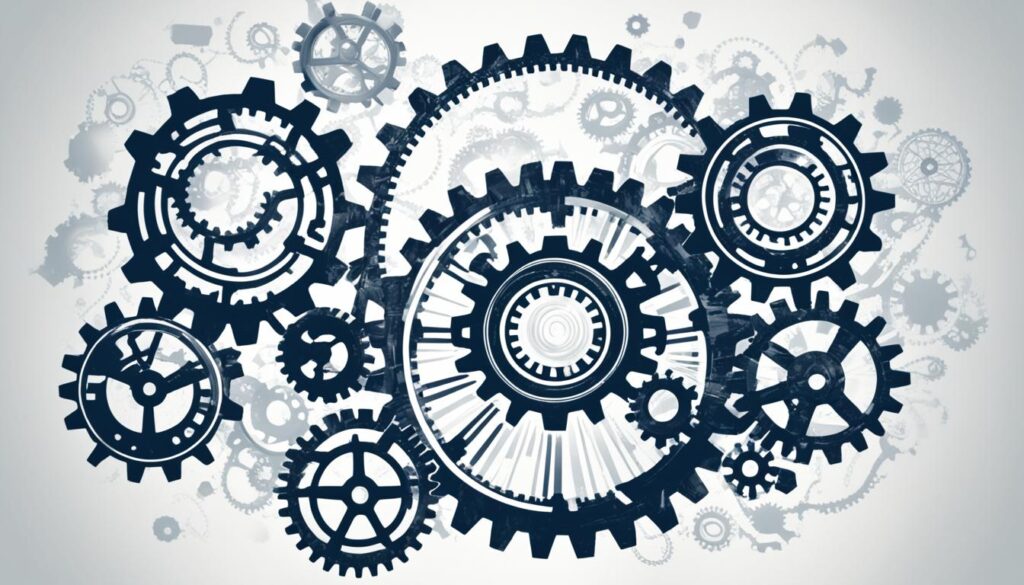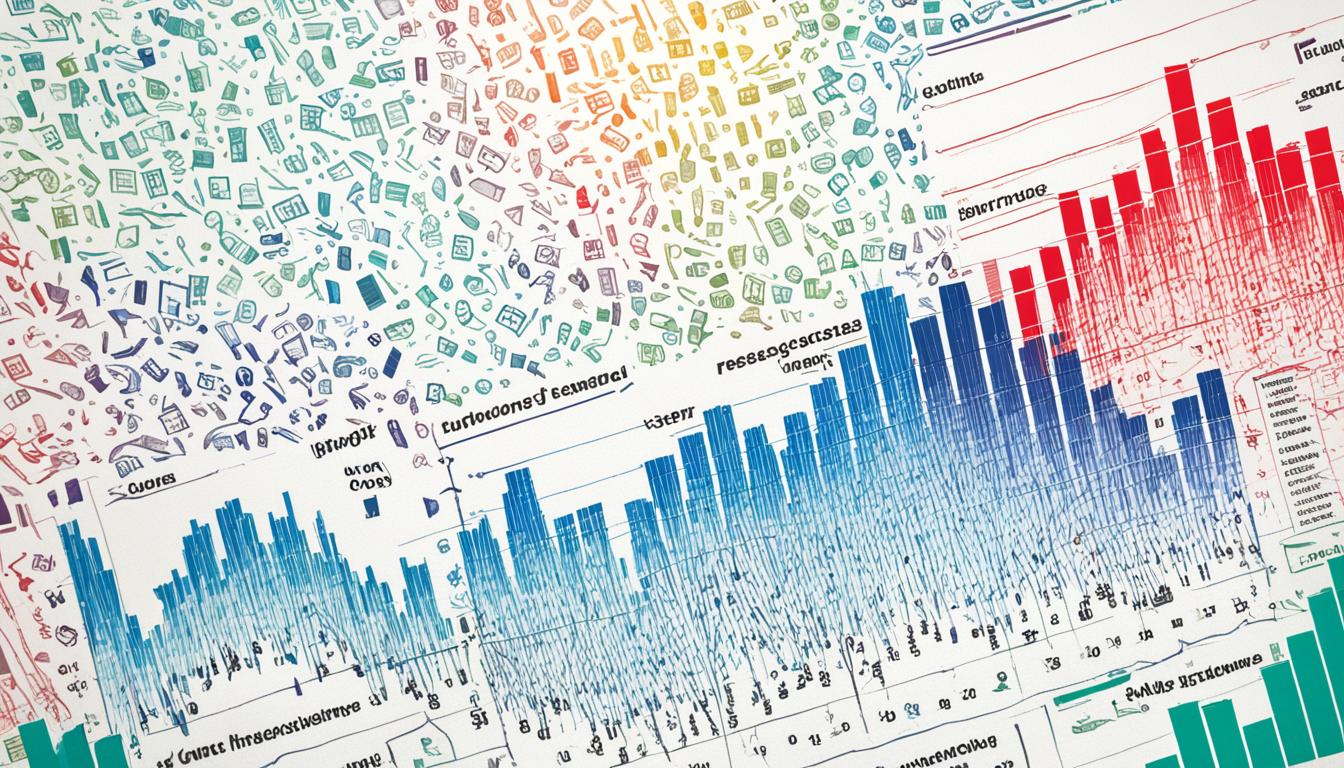“As an Amazon Associate I earn from qualifying purchases.”
In the United States, the average inflation rate from 1913 to 2023 sits at an astonishing 3.1%. This seemingly small annual increase has compounded over time into a transformative force that continuously redefines the economic landscape for every American. Indeed, inflation, alongside its shadowy counterpart, recession, forms the backbone of fiscal dynamics, posing financial challenges that affect individuals, institutions, and countries alike. In a world where economic trends are as unpredictable as the weather, comprehending the dichotomy between an economy plagued by inflation—where a dollar today buys less than a dollar did yesterday—and one crippled by recession—where job security and market stability seem like relics of a bygone era—is essential.
The interwoven nature of inflation and recession has more to it than meets the eye. Your understanding of these two forces can significantly influence the decisions you make, from personal investments to career choices. Inflation is not just about rising prices, it’s an economic signal—sometimes indicating an overheating economy at risk of a slowdown. Conversely, recessions reshape not just industries and employments but can also change the course of national economies and global financial stability.
Key Takeaways
- Recognize that inflation and recession are core components of broader economic trends, which have direct impacts on your financial well-being.
- Understand that inflation equates to an increase in general price levels, gradually diminishing your purchasing power.
- Comprehend that a recession signifies a period of economic downturn, which can lead to industry transformations and shifts in the job market.
- See how fiscal dynamics around inflation and recession can shape policy decisions, affecting everything from interest rates to employment rates.
- Acknowledge the delicate balance policymakers must maintain to mitigate the effects of inflation without triggering a recession.
Decoding Inflation: The Silent Consumer Tax

Inflation is often likened to a hidden tax that silently erodes the value of your hard-earned money. As you contend with rising general price levels, understanding the mechanisms behind this economic phenomenon is crucial.
Why Prices Rise: Causes of Inflation
Several factors contribute to inflation, with increasing the money supply being a prominent trigger. When more money chases the same amount of goods, prices invariably rise. Moreover, a production decline—stemming from natural disasters or geopolitical tensions—can limit the availability of goods, further driving up costs. Additionally, an uptick in spending often signals a healthier economy but can also accelerate inflationary pressures.
The Ripple Effect: Impact of Inflation on the Economy
An expanding inflation rate can have a varied impact on different economic stakeholders. Borrowers may find solace as their debts diminish in value, but lenders experience the opposite effect, receiving payments that are worth less over time. Here’s a glance at how inflation affects various sectors:
| Sector | Impact of Inflation |
|---|---|
| Consumers | Decreased purchasing power |
| Lenders | Lower real returns on loans |
| Investors | Altered investment strategies to offset inflation risk |
| Government | Shifts in fiscal policy to moderate inflation |
The Consumer’s Burden: How Inflation Reduces Purchasing Power
Inflation imposes a tangible economic strain on consumers. With each dollar less capable of buying goods and services, living standards may recede unless incomes rise in tandem with prices. This effect is not merely observed at the cash register but is also reflected in the gradual creep into higher tax brackets, effectively reducing net income and altering financial planning.
Recognizing the insidious nature of inflation as a hidden tax is vital for personal financial management and for understanding broader economic health. Your awareness and adaptation to these realities can mitigate the adverse effects of inflation on your purchasing power and overall financial well-being.
Linking Inflation and Recession: A Complex Interplay
As you navigate through the economic landscape, it’s crucial to understand how inflation and recession are deeply intertwined, affecting everything from your personal finances to the broader economic health. Historically, periods with persistent economic growth have been peppered with phases where business revenue succumbs to the pressures of inflation. The Federal Reserve, playing a decisive role in economic stabilization, frequently responds to these pressures by adjusting interest rates. But when does the Fed’s intervention help, and when might it exacerbate the problems?
Consider the scenario where inflation rates soar, pushing the cost of living upwards. Businesses, facing higher input costs, often transfer these expenses to consumers, causing a ripple effect that deters spending and investment. The Federal Reserve, in its mandate to maintain economic equilibrium, may raise interest rates to temper inflation. However, such actions are not without consequences. Elevated interest rates can result in restricted credit access, dampening investment and expansion plans, which in turn can stifle business revenue and economic growth. This delicate balancing act is a testament to the intricate relationship between inflation control and recession prevention.

“The task of the Federal Reserve is to apply the brakes just enough to prevent inflation from overheating, yet not so much as to halt economic expansion.”
Below is an elaboration of potential outcomes when the Federal Reserve increases interest rates:
| Interest Rate Action | Immediate Effect | Long-Term Impact |
|---|---|---|
| Raise Interest Rates | Higher borrowing costs | Decreased consumption and investment |
| Significant Rate Hike | Reduced liquidity in markets | Potential slowdown in economic activity |
While it’s clear that controlling inflation is essential, the approach to managing it through interest rate adjustments is a nuanced affair that requires strategic foresight. Without careful consideration, such measures have the potential to spiral into a cycle of reduced consumer and business spending, ultimately culminating in a recession. As you observe changes in the economic indicators, remember that each movement in interest rates is a response to inflationary trends, carrying with it an array of implications for economic growth, employability, and the financial markets.
Navigating Economic Signals: Recognizing Recession Indicators
As you brace for potential economic downturns, understanding the primary indicators of a recession is imperative. Analysts look at a variety of signals that point to the health of the economy. Among these indicators, Gross National Product (GDP), unemployment data, and stock prices prove to be critical in foreshadowing a downturn. The National Bureau of Economic Research (NBER) systematically studies these metrics to officially declare recessions.
GDP and Unemployment: Key Economic Barometers
GDP serves as a comprehensive gauge, encapsulating the total value of all goods and services produced over a specific period. When GDP trends downward over consecutive quarters, it signals contracting economic activity, reflective of a recessionary environment. Unemployment rates are another cornerstone for gauging economic well-being. Rising unemployment indicates reduced labor demand and diminished consumer spending power, which often lead up to a recession.
The Stock Market: An Early Warning System?
Monitoring stock prices also proves valuable for investors and economists alike, as the stock market can act as a barometer for future economic performance. Sharp declines in stock prices are frequently considered recession signals, with investors’ confidence waning in the face of anticipated lower corporate earnings and economic slowdowns.
| Indicator | Signs of a Healthy Economy | Signs of an Economic Downturn |
|---|---|---|
| Gross National Product (GDP) | Consistent growth | Contraction for two or more consecutive quarters |
| Unemployment Rate | Low and stable | Rising, signaling increased job losses |
| Stock Prices | Steady or bullish trend | Volatility, followed by persistent downturns |
Recognizing these indicators can provide a roadmap for navigating through tumultuous economic climates, where preparedness can mean the difference between weathering a storm and financial hardship. Stay informed, stay vigilant, and use these signals to guide your economic and investment strategies.
Inflation vs Recession: Untangling the Economic Knot
When economic phenomena such as inflation and recession come into play, the repercussions on your daily life and financial stability can be profound. Both represent influential economic forces, yet they have distinctly different impacts on your wallet and the broader economy. Understanding these impacts is crucial for managing your finances effectively in the face of such economic challenges.
Contrasting Impacts: How Your Wallet Feels Each Differently
The bite of inflation is most keenly felt in the gradual decrease of your purchasing power. As prices climb, your dollar stretches less, impacting everything from your grocery bill to your energy costs. In contrast, a recession often triggers uncertainty in employment, leading to heightened concerns about job security and potential income loss. This, in turn, can severely shake consumer confidence, causing a pullback in spending and an economy bracing for a slowdown.
The Policy Puzzle: Government Intervention in Inflation and Recession
Policymakers are frequently faced with the daunting task of enacting the appropriate monetary policy and fiscal intervention to mitigate the effects of these economic circumstances. Navigating this policy puzzle requires a delicate balance; overly aggressive measures can either stifle growth or fuel further inflation. The Federal Reserve, for instance, may adjust interest rates to cool an overheating economy or to stimulate investment and spending during economic downturns.
In the table below, we take a closer look at how these economic measures have historically been applied to influence the economy’s direction:
| Economic Phenomenon | Monetary Policy Tool | Fiscal Intervention Example | Expected Impact on Consumer |
|---|---|---|---|
| Inflation | Interest Rate Hike | Reduction in Government Spending | Reduced Spending Power |
| Recession | Interest Rate Cut | Stimulus Packages | Improved Job Market |
By keeping a close eye on these economic activities and government responses, you can make more informed decisions to safeguard your financial well-being. Whether this means adjusting your investment strategy, altering your savings plan, or simply staying informed, your proactive steps are essential in a changing economic landscape.
Learning from the Past: Historic Recessions and Inflationary Periods
As you delve into the annals of economic history, it’s clear that the lessons of the past serve as guideposts for present and future financial stability. Through understanding historic events such as the Great Depression, the trauma of subsequent financial crises, and the nuanced strategies that fostered economic recovery, you equip yourself with the knowledge to navigate tumultuous financial waters. The Federal Reserve has played a pivotal role in shaping the economic landscape in response to these challenging times, making the study of its actions invaluable.
Take for instance the Great Depression, which stands as a testament to the profound impact financial downturns can have on the global economy. Its onset was marked by bank failures, stock market crashes, and rampant unemployment, creating a cycle of economic despair. Similarly, the 2007 financial crisis, triggered by a housing market collapse, led to significant reforms designed to reinforce financial oversight and cushion economies against future crises.
Exploring these historic periods provides critical insights that can help preempt or mitigate the effects of possible future recessions. The policies enacted, such as amendment to interest rates, quantitative easing, or the introduction of fiscal packages, have all aimed at stimulating economic recovery after downturns and crises. Careful scrutiny of these measures can shed light on the evolving role of the Federal Reserve in economic stabilization efforts.
| Historic Period | Years | Significant Events | Recovery Actions |
|---|---|---|---|
| The Great Depression | 1929-1939 | Stock Market Crash, Banking Failures, High Unemployment | New Deal Programs, Banking Reforms |
| 2007-2009 Financial Crisis | 2007-2009 | Housing Market Collapse, Credit Crunch | Economic Stimulus Act, Dodd-Frank Act |
| COVID-19 Recession | 2020 | Global Pandemic, Economic Lockdowns | CARES Act, Federal Reserve Emergency Measures |
By reflecting on these times, you recognize the cyclical nature of economies and the importance of preparedness and adaptability. The past efforts exemplified by monetary and fiscal interventions have often laid the groundwork for robust economic recovery and growth. These precedents underscore the need to meticulously analyze historic downturns, enabling policymakers and the public to fortify against future threats to economic stability.
Dissecting Downturns: Characteristics of Recessions
As you delve deeper into the business cycle’s troughs, it becomes evident that economic contractions share a series of defining hallmarks. Recessions often revolve around significant shifts in employment and housing, sectors that keenly reflect a nation’s economic vitality. Understanding these features not only aids in identifying the stages of a recession but also equips you with the knowledge to anticipate the potential impacts on daily life and to strategize accordingly.
The Labor Market’s Struggles: Employment Challenges During Recessions
The labor market frequently bears the brunt of economic contractions, with job creation stalling and unemployment rates climbing. The patterns observed during downturns, such as the infamous jobless recovery following the dotcom collapse, lay bare the tangible hardships workers face. A recession can severely disrupt labor demand, often resulting in prolonged job searches and increased competition for fewer positions. This can profoundly affect your financial security and influence broader social issues.
The Housing Market and Recession: A Reflection of Economic Health
A healthy housing market signifies robust economic activity, while its struggle often symbolizes a broad economic downtrend. For instance, the 2008 financial crisis sent shockwaves through this sector, highlighting the interdependence between real estate and financial stability. Fluctuations in the housing market during a recession typically manifest as decelerated construction, plummeting home values, and a tentative buyer’s market, influencing both personal wealth and the public psyche. When navigating through these uncertain times, keeping a close watch on the housing market can offer valuable insights into the broader economic landscape and your place within it.
FAQ
What are the main causes of inflation?
How does inflation function as a hidden tax on consumers?
What is the interrelation between inflation and recession?
What indicators signal the onset of a recession?
How does inflation affect my personal finances?
Why is understanding economic history important in relation to recessions and inflation?
What are typical characteristics of an economic recession?
How do government policies impact inflation and recession?
Can the housing market reflect the state of the economy during a recession?
What is the Federal Reserve’s role during inflationary periods and recessions?
Source Links
- https://www.rba.gov.au/education/resources/explainers/recession.html
- https://www.whitehouse.gov/wp-content/uploads/2022/12/TTC-EC-CEA-AI-Report-12052022-1.pdf
- https://www.forbes.com/advisor/investing/what-is-a-recession/
- https://www.whitehouse.gov/cea/written-materials/2022/07/21/how-do-economists-determine-whether-the-economy-is-in-a-recession/
- https://www.businessinsider.com/personal-finance/recession-vs-depression
- https://www.mckinsey.com/featured-insights/mckinsey-explainers/what-is-a-recession
- https://www.investopedia.com/terms/d/demandshock.asp
- https://en.wikipedia.org/wiki/Recession
- https://www.mckinsey.com/capabilities/risk-and-resilience/our-insights/somethings-coming-how-us-companies-can-build-resilience-survive-a-downturn-and-thrive-in-the-next-cycle
“As an Amazon Associate I earn from qualifying purchases.”

